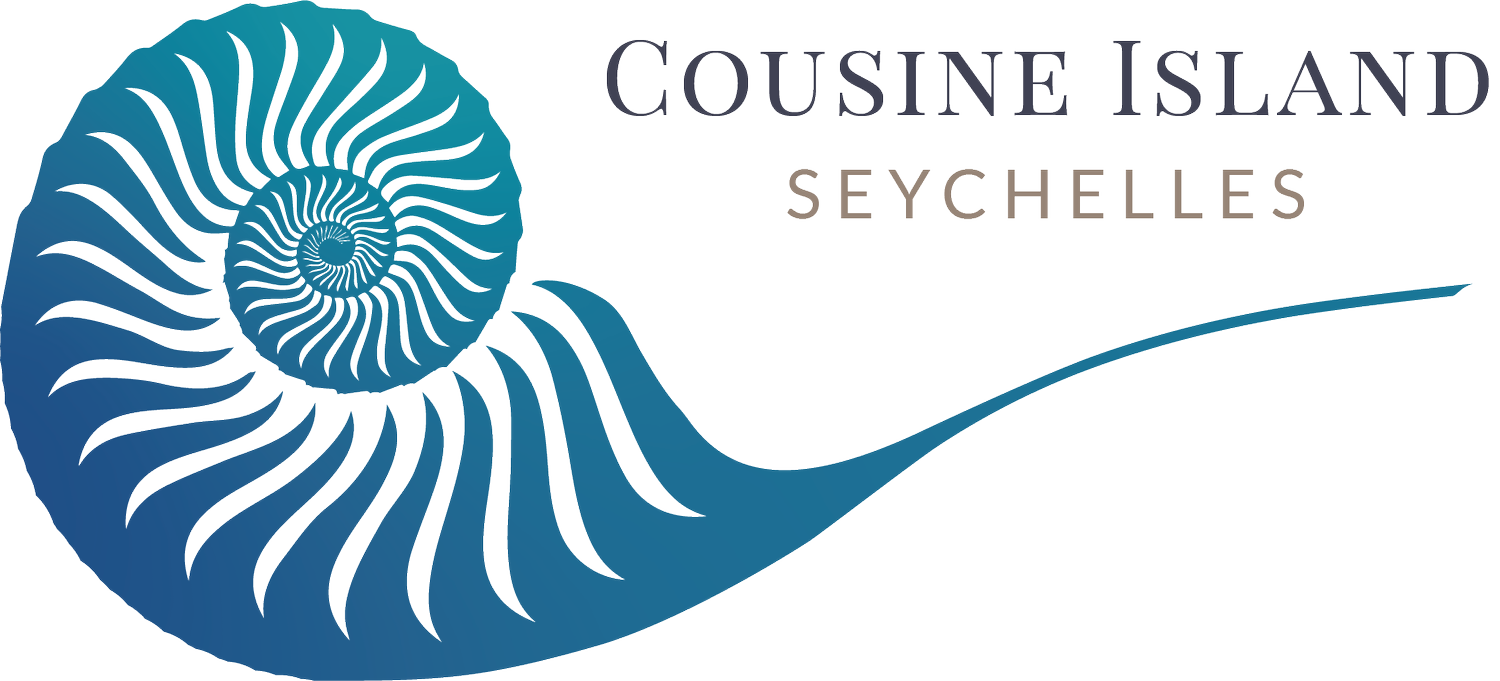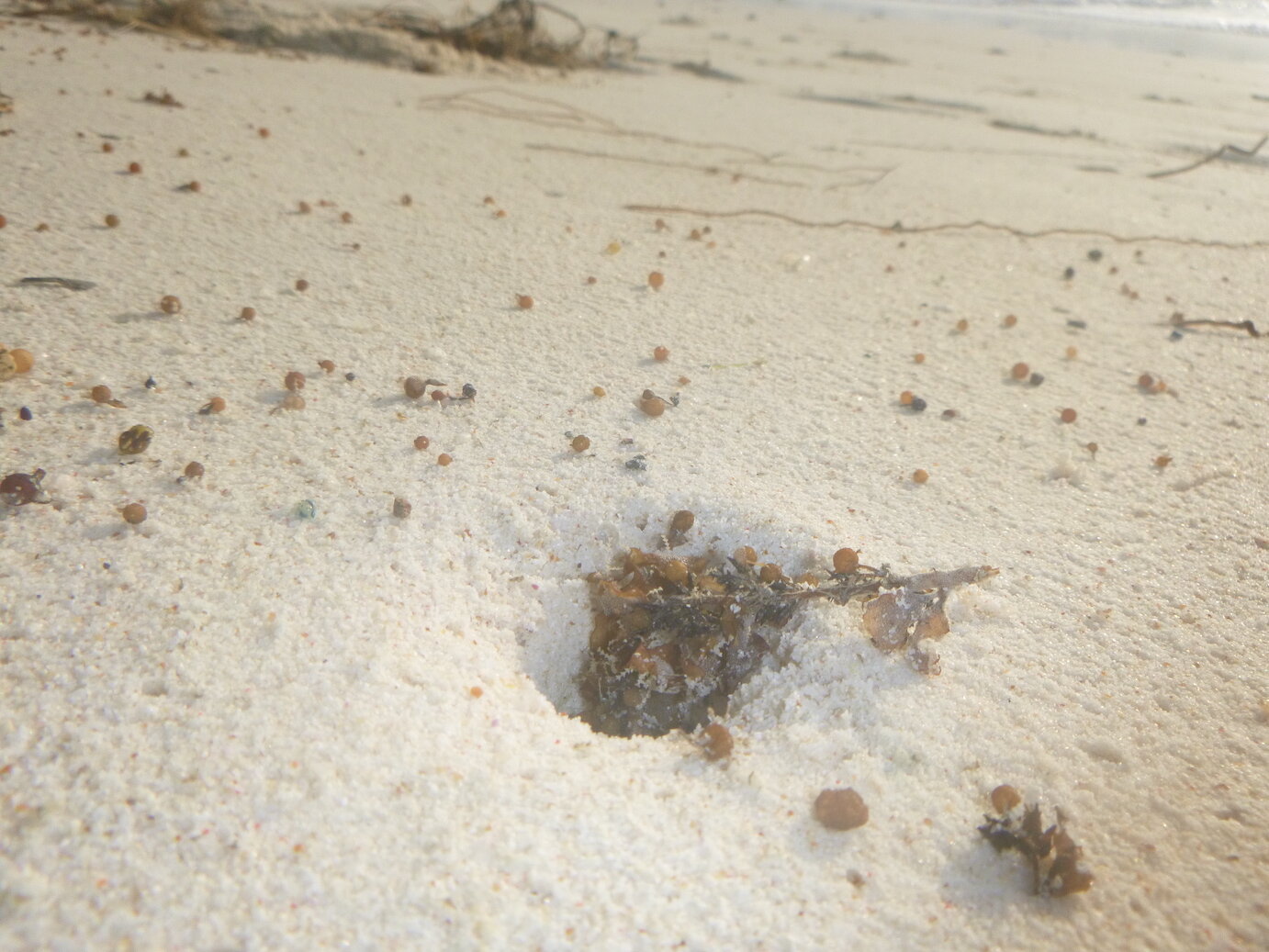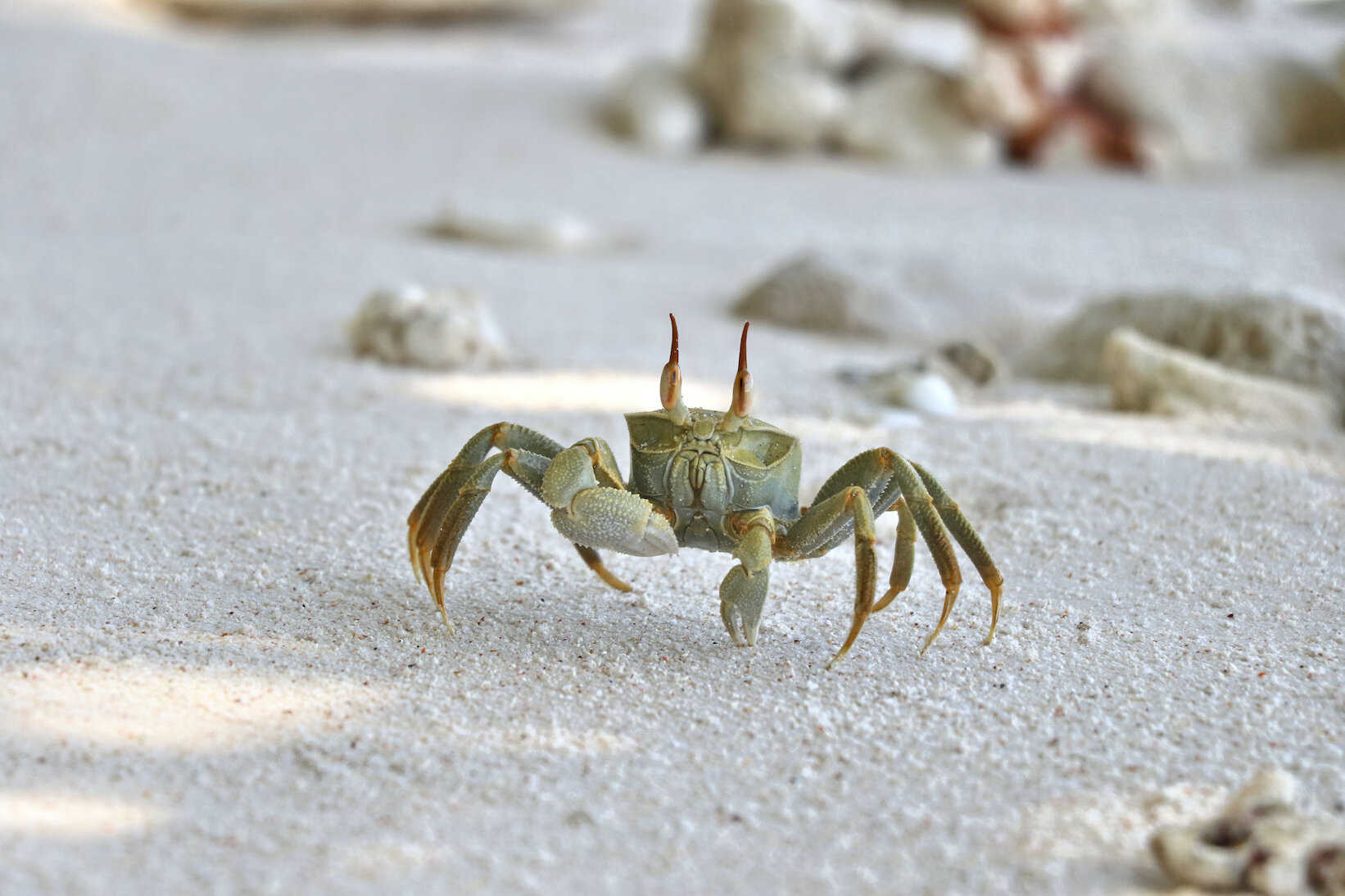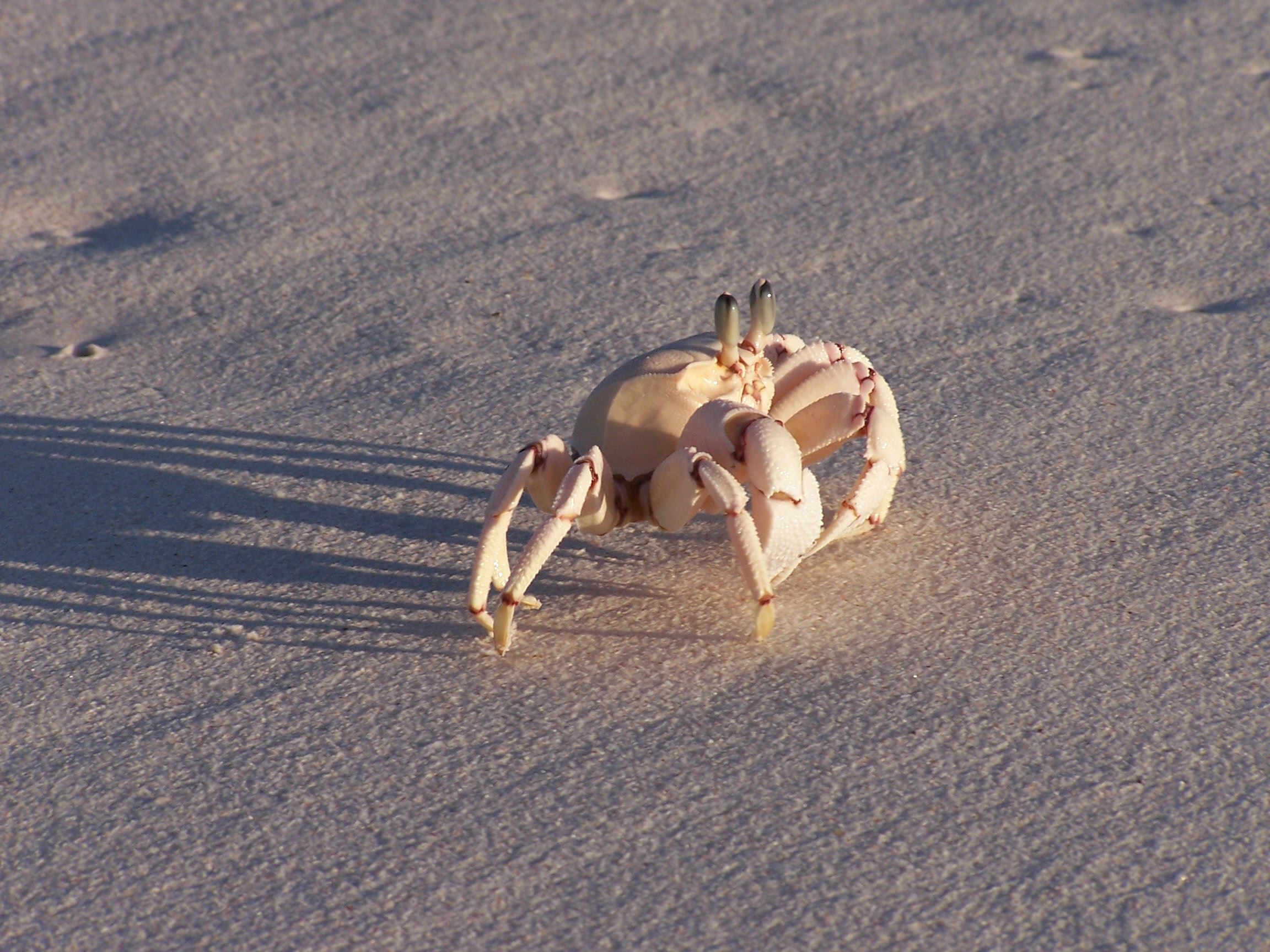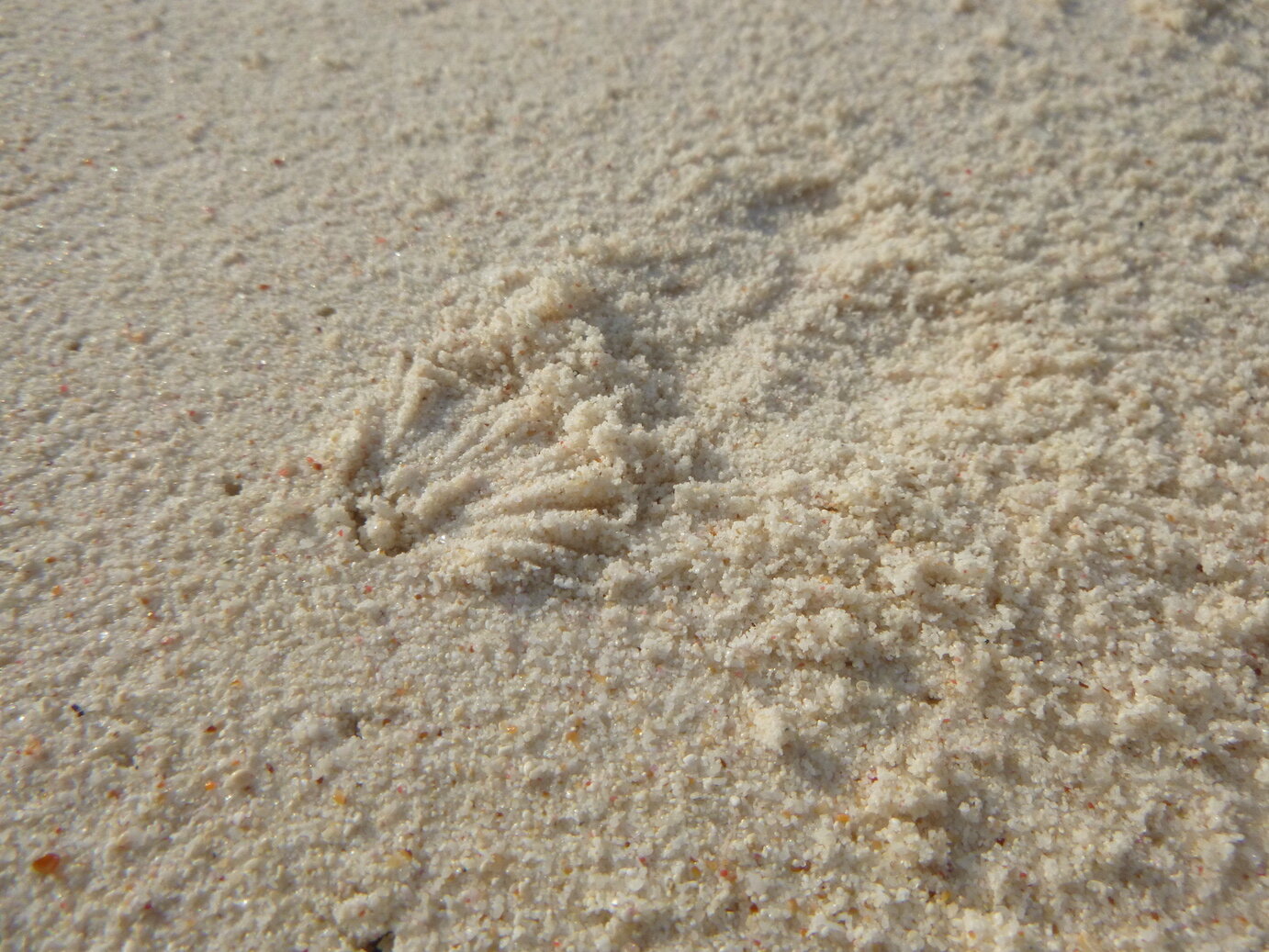神秘的幽灵蟹库桑岛海岸的守护者
在库西讷岛洁白明亮的海岸边,海水不断冲刷着沙滩,一种安静而难以捉摸的居民在阴影和阳光之间游荡。
幽灵蟹在当地被称为 "楼兰"(Loulou),是岛上最引人入胜的沿海居民之一。
这些动物远不止是海岸线上一闪而过的风景。在库桑岛上,野生动物在罕见的保护和恢复理念下茁壮成长,幽灵蟹在这个占地 26 公顷的保护区的微妙平衡中发挥着至关重要的作用。它们存在于美丽与必要的交汇点上--提醒着人们,每一个物种,无论多么渺小,都为岛上的大故事做出了贡献。
每年东南信风季节,该岛都会变成海鸟回归繁殖的天堂。七月初是库西讷一年一度海鸟普查的开始,保护团队在这里静静地观察天空和海岸线。最近的普查记录显示,有超过 8 万对海鸟(超过 16 万只海鸟)在这个小岛上繁殖,这是库西讷数十年来保护任务取得成功的一个令人惊叹的证明。在这一丰富的生态系统中,幽灵蟹成为了一个充满活力、自给自足的生态系统的重要参与者。
作为天然的海滩守护者,鬼蟹以一种既微妙又重要的方式维护着海岸线。
它们的存在是生态健康的一个指标:在幽灵蟹繁衍生息的地方,海滩是干净的、未受干扰的,并按照大自然的意愿发挥作用。它们以惊人的速度在沙滩上飞奔,捡拾掉落的果实、植物材料、腐烂的海洋生物,甚至是偶尔孵化的海龟。这种投机取巧的饮食方式使它们能够将养分回收到海岸系统中,确保海滩继续成为岛屿生态中生机勃勃的一部分。
库桑岛海岸栖息着三种不同种类的幽灵蟹。
有角的幽灵蟹(Ocypode ceratophthalmus)可能是最引人注目的一种,它的眼睛顶端有像角一样的小突起。这些角只有在螃蟹长到一定大小时才会出现,给成年螃蟹带来一种独特的、近乎神话般的外观。胖胖的幽灵蟹(Ocypode cordimana)外形更粗壮,没有这些眼柄角,是另一种在沙地上肆意游荡的熟悉形状。在极少数情况下,游客可能会有幸遇到粉色幽灵蟹(Ocypode eyderi)--这是 2002 年在库西内岛首次发现的物种,标志着塞舌尔生物记录的一个重要时刻。
它们的行为在海滩上悄然展开,为这座小岛增添了奇妙的感觉。在炎热的白天,体型较小的幽灵蟹经常用细小的沙粒封住洞穴的入口--它们用钳子精心制作了这些细小的沙粒,为自己遮挡阳光。体型较大的螃蟹则采取不同的方法,它们会把海草和海洋碎屑拖到洞穴入口处,在海面下营造一个凉爽而隐蔽的避难所。每一个动作,每一种本能,都反映出它们对环境深刻而古老的理解。
这些螃蟹既难以捉摸,又不可或缺,它们代表了库桑岛这样一个地方的魔力--在这里,大自然不受人为干扰,自由自在地运行。在这里,海岸线变成了一个微妙运动的剧场:海鸟在头顶盘旋,海浪划过缎白的沙滩,幽灵蟹以心跳般的速度消失在洞穴中。
目睹库桑岛上的幽灵蟹,就等于目睹了用心保护生态系统的成功。
该岛以保护为先的理念--同样的承诺每年让数以万计的海鸟回归,并从山脊到珊瑚礁恢复原生植物--确保了像幽灵蟹这样的物种能够像几个世纪以来一样继续繁衍生息。
对于漫步在岛屿海岸线上的游客来说,这些神秘生物的存在增强了库西讷体验的独特性和宁静感。它们在沙滩上如流星般划过,无声地提醒着人们这座岛屿的承诺:这里的每一寸海岸线都在诉说着一个故事,每一种生物都在扮演着一个角色,而真正的奢华在于保护大自然脆弱的和谐。
在库辛岛,没有什么是孤立存在的。鬼蟹就像生命挂毯上的一根线,从岛上森林密布的中心地带一直延伸到波光粼粼的海边--这证明了保护的力量,也证明了当大自然真正野性蓬勃发展时,其宁静、持久之美。
这些螃蟹既难以捉摸,又不可或缺,它们代表了库桑岛这样一个地方的魔力--在这里,大自然不受人为干扰,自由自在地运行。在这里,海岸线变成了一个微妙运动的剧场:海鸟在头顶盘旋,海浪划过缎白的沙滩,幽灵蟹以心跳般的速度消失在洞穴中。
